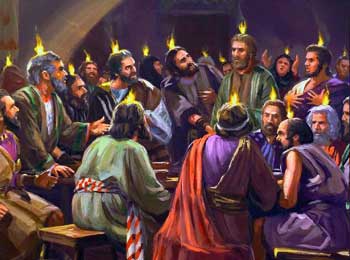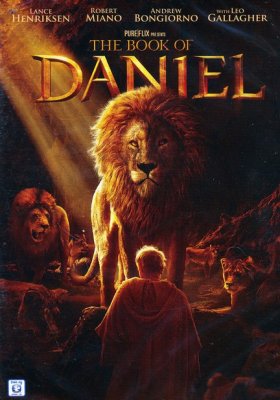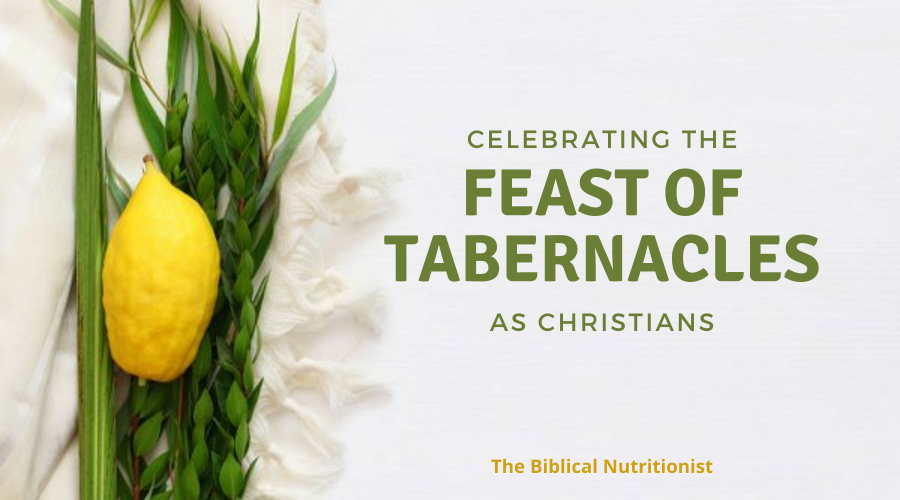CELEBRATIONS OF CHRISTIAN FAITH
Biblical holy days for Christians, are those specifically mentioned in the Old and New Testament, such as Passover, Weeks (Pentecost), Tabernacles, and the Sabbath. These are seen as having prophetic significance related to Jesus and his ministry.

Passover
The Biblical PASSOVER for the year 2026 falls on Evening of Wed, Apr 1, 2026 – Thu, Apr 9, 2026

EXPLORING THE MEANING OF PASSOVER
For Christians, Passover isn't just a historical event, but a prophetic foreshadowing of the ultimate sacrifice of Jesus Christ, the Lamb of God. His crucifixion coincides with Passover, representing a new covenant between God and humanity, mirroring the liberation of the Israelites from Egyptian slavery.
Fulfillment of Prophecy:
the New Testament, particularly the Gospels and Paul's letters, see Jesus as the fulfillment of the Passover lamb, whose blood was shed for the redemption of humanity.
the New Testament, particularly the Gospels and Paul's letters, see Jesus as the fulfillment of the Passover lamb, whose blood was shed for the redemption of humanity.
The crucifixion of Jesus, coinciding with Passover, marks a new covenant, a spiritual liberation from sin, similar to the Israelites' liberation from physical slavery.
The Apostle Paul explicitly connects the two in 1 Corinthians 5:7, stating, "For Christ, our Passover lamb, has been sacrificed".
This connection highlights the shared heritage and the fulfillment of Old Testament prophecies through Jesus' life, death, and resurrection, which is celebrated in Christian Easter.
Passover is a time when God's power and protection are demonstrated, just as He protected the Israelites from the plagues in Egypt.
Some believe that Passover is a time when God revives faith and releases grace for protection, purity, power, and prophecy.
Christians believe that Jesus is the ultimate Passover lamb, who takes away the sins of the world, just as the lamb's blood protected the Israelites.
PENTECOST
The Biblical Pentecost for the year 2026 falls 22 May 2026

EXPLORING THE MEANING OF PENTECOST
In the Bible, Pentecost is a pivotal event described in the book of Acts, specifically Acts 2:1-41. It marks the descent of the Holy Spirit upon the apostles and other followers of Jesus in Jerusalem, fulfilling Jesus' promise to send a "Helper". This event is seen as the birth of the Christian Church and the beginning of its mission to the world.
Key Aspects of Biblical Pentecost:
Fulfillment of a Promise:
Jesus had promised his disciples a "baptism in the Holy Spirit" (Acts 1:5, 8) and a "Helper" who would teach them all things (John 14:26), which was fulfilled on Pentecost.
The Holy Spirit descended upon the apostles and other believers, giving them the ability to speak in other languages (Acts 2:1-13) and empowering them to preach the gospel.
Pentecost is considered the beginning of the Christian Church, as it marked the point where believers were empowered to share the message of Jesus and spread the faith to the world.
Pentecost also has roots in the Old Testament, specifically the Feast of Weeks (Shavuot), a Jewish harvest festival. The New Testament Pentecost is understood as a fulfillment of this Old Testament observance.
The outpouring of the Holy Spirit transformed the apostles, who were once fearful and hesitant, into bold and confident preachers of the gospel.
Pentecost is a significant event in Christian history and theology, marking the beginning of the church's mission and the empowerment of believers with the Holy Spirit.
The Feast of Tabernacles
The Biblical Feast of Tabernacles for the year 2026 falls on Sept 25, 2026 – Oct 2, 2026
When looking at the Books of Daniel, Zechariah and Revelations, we see that the Feast of Tabernacles prophetically proclaims the kingdom of God to the earth. Jesus will return and to stand with His feet on the Mount of Olives on that day.
Books of Daniel , Zechariah and Revelations


EXPLORING THE MEANING OF The Feast of Tabernacles.
For Remnant Christians, the Feast of Tabernacles (Sukkot) is a time to celebrate God's provision, remember His presence, and deepen their relationship with Him. They see the feast as a fulfillment of what Jesus represents and a time to rejoice in the Holy Spirit's dwelling within them. Here's a more detailed look.
Key Aspects for Christians:
- Fulfillment in Jesus: True Christians believe that Jesus fulfills the symbolism of the Feast of Tabernacles, including dwelling in tabernacles, making offerings, and practicing solemn rest.
The Sukkah as a Symbol:
The sukkah, or temporary dwelling, is a key symbol of Sukkot, reminding people of the Israelites' journey through the wilderness and their dependence on God. Living in a sukkah for a week allows for a shift in perspective, moving away from materialism and focusing on simplicity, unity, and spiritual reflection.
Christian Perspectives:
- Some Christians are drawn to observing Sukkot to better understand the Jewish life that Jesus lived and to appreciate the rituals He and His disciples observed.
- Remembering God's Provision:
The feast reminds Christians of God's ongoing provision and His continued presence in their lives.
- Deepening Relationship:
It's a time for spiritual reflection and strengthening their relationship with God.
- Celebrating the Holy Spirit:
Christians who observe Sukkot often view it as a time to rejoice in the Holy Spirit's presence within them.
- Harvesting Souls:
Some see the ingathering of the harvest, a central theme of Sukkot, as a metaphor for the gathering of souls into the Kingdom of God.
- Joyful Celebration:
Sukkot Is a joyous time to rejoice in God's blessings and fellowship with others. Others see the feast as a prophetic foreshadowing of the Messiah, the light to the Gentiles, and a time to remember Jesus' sacrifice.
Christmas
CHRISTMAS DAY falls on Fri. December 25, 2026.

Christmas Season
Although we celebrate Christmas season during December, we refer to it as the Thanksgiving season because we believe Christ was born on Nisan 6, according to God's calendar, which corresponds to late March to early April in the Gregorian calendar and not December 25.
RELIGIOUS CHRISTIAN HOLIDAYS
While there are several Christian celebrations like Easter and Christmas, it's worth noting that these are not directly referenced in the Bible and are predominantly celebrated by those who practice the religion. Given our non-affiliation with any specific religion, we do not engage in observing these occasions.
